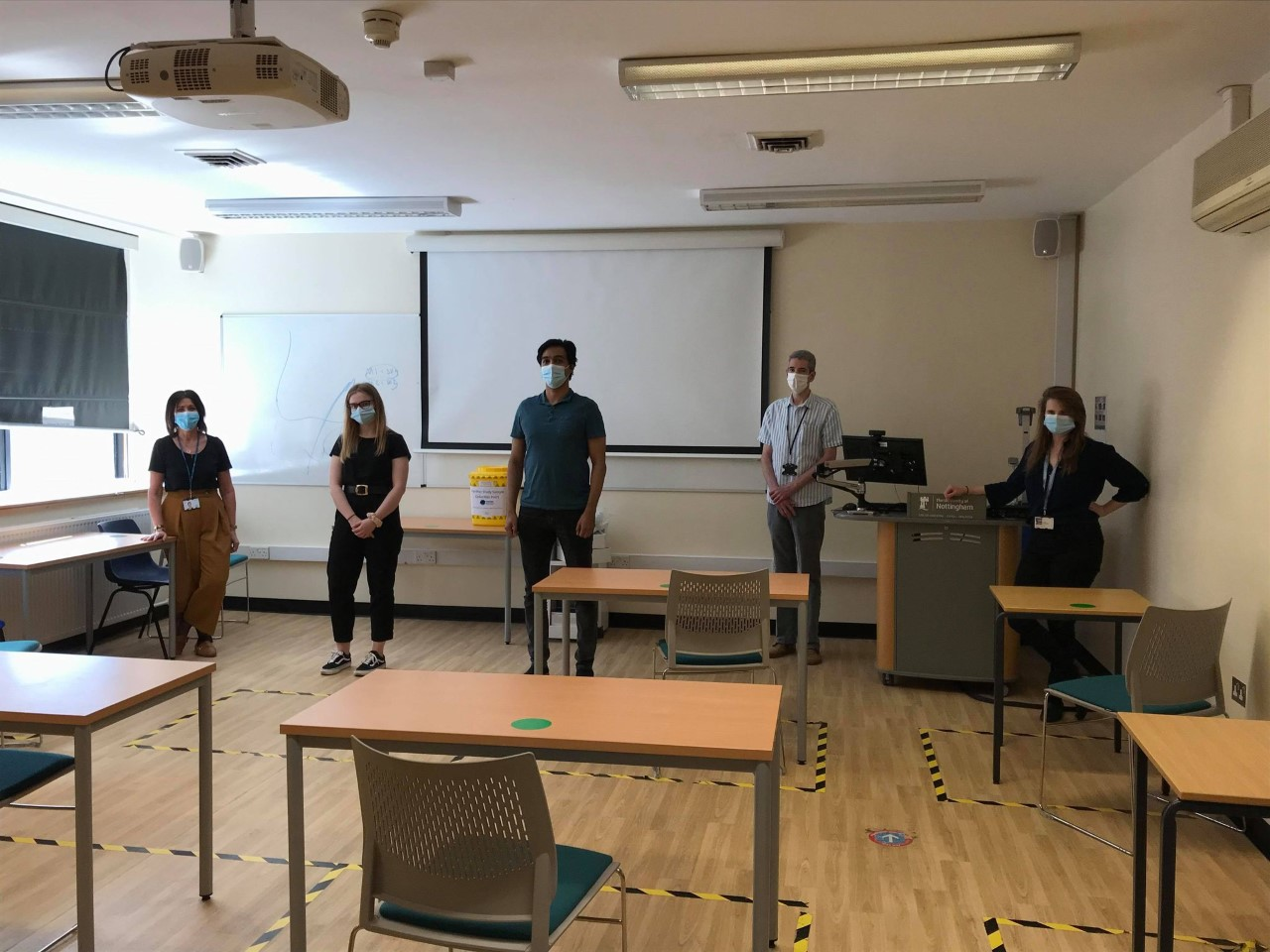Healthy lives
Covid transmission: what a study of Nottingham NHS staff taught us
A year ago, at the peak of the pandemic, Professor Ben Ollivere and I, with a team of dedicated researchers from the Schools of Medicine and Life Sciences, launched PANTHER – a pandemic tracking study of healthcare workers at Nottingham University Hospitals Trust.
 Ana M Valdes
Ana M Valdes
Professor in Molecular and Genetic Epidemiology
We wanted to understand the risk to healthcare workers, the risk of transmission of the virus to their families and how long immunity to the virus lasts.
We asked 633 doctors, nurses and other NHS staff from the Queens Medical Centre and City Hospital to give us weekly or fortnightly blood samples between late April and mid-Jul 2020 and in the autumn, with further samples after the first and second doses of the vaccine.
This study, initiated with the goodwill and hard work of scientists, clinicians and research assistants from the School of Medicine and NUH, has secured funding from UK Research and Innovation and the Medical Research Council and is the subject of several draft publications. It has involved processing, recording and shipping tens of thousands of serum samples.
We learned:
- 18% of NUH healthcare workers had antibodies at least one point during the first wave (April-July 2020) – rising to 22% in the autumn
- 28% of those self-isolating due to Covid symptoms during the first wave actually had antibodies
- 39% of those having symptoms compatible with Covid (using Zoe Covid app criteria) had antibodies
- 85% of those who had antibodies had “neutralizing antibodies”, which render the virus no longer infectious or pathogenic.
We found strong differences in terms of ethnicity. Those reporting Afro-Caribbean, mixed Black or Black African origin were over twice as likely to have antibodies, even after adjusting for type of hospital role, age, sex, etc. Could this be because there may be genetic factors that predispose to a better antibody response against the SARS-CoV-2 in some ethnic groups? This is now published in eClinicalmedicine.
In addition, healthcare workers in the Intensive Therapy Unit (ITU) were 55% less likely to have antibodies than other hospital roles.
"This research, which started looking at the risk of transmission, is now telling us about vaccine effectiveness and protection against new virus variants after the vaccine. "
 Project team
Project team
How about transmission at home? We were very grateful housemates and family members living with 132 of the health workers enrolled on the study also provided blood samples.
Of these 177 co-habitees:
- 2% had antibodies by late August/early September
- Of those living with a healthcare worker who had antibodies against the virus that causes Covid-19 during the first wave, 2.5% also had antibodies
- 16% living with a healthcare worker who had been infected with the virus had antibodies.
This suggests an almost seven-fold risk of getting the virus if they lived with someone infected. What does it mean? We know that back in May seropositivity (a positive test) in the general population was around 5% and that antibodies are less detectable after several weeks (although that does not mean no immune memory, simply lower antibody concentrations). If we assume that between the first wave and early September the proportion in the population with detectable anti SARS-CoV went from 5% to 2.5%, that means that although only 16% of cohabitees who were positive in early September, this may have been as high as 32% back in May/June 2020. That would imply that 68% of those living with a healthcare worker who had the virus did NOT develop antibodies to SARS-CoV-2, most likely because they did not catch the virus.
We then tested for antibodies after the first and second doses of the vaccine and found that healthcare workers who had been infected with the SARS-CoV-2 had much higher antibody levels to the spike protein (the virus protein used in the vaccine) than those who hadn’t had an infection. Not only that, they developed more of the type of antibodies that are effective at fighting the infection (neutralising antibodies). We are currently testing the levels of neutralising antibodies against the South African variant to see how effective is the second dose of the vaccine at increasing the levels of these virus-fighting molecules.
On the first anniversary of the PANTHER study, we want to thank all the healthcare worker volunteers and the whole team from the School of Medicine and the NHS who made this possible: Jess Nightingale, Jayne Newham, Simon Craxford, Adeel Ikram, Amrita Vijay, Stuart Astbury, Melanie Lingaya, Ben Marson, Weronika Rychlyk, Barbara Nowicka, Alan Norrish, Tony Kelly and Waheed Ashraf.
This research, which started looking at the risk of transmission, is now telling us about vaccine effectiveness and protection against new virus variants after the vaccine.
Written by:
Ana M Valdes
Professor in Molecular and Genetic Epidemiology
Ana M Valdes is Professor in Genetic and Molecular Epidemiology, School of Medicine.
